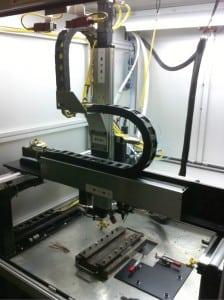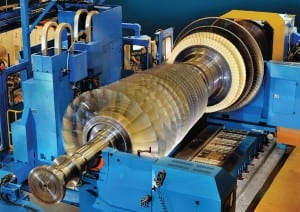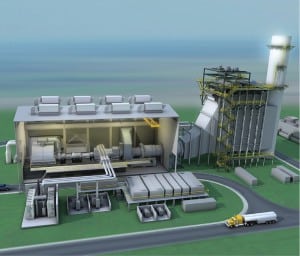Features
-
O&M
Avoiding Flow-Induced Sympathetic Vibration in Control Valves
Compressible fluid flow through control valves will inevitably cause some form of flow-induced vibration in the fluid system. Identifying the type and cause of the vibration requires detective work. Determining the design changes required in the valve and fluid system to prevent the vibration from occurring requires advanced analytical techniques.
-
Coal
Editors Select Top Five Stories of 2011
The POWER editorial staff’s picks for the most significant stories of 2011.
-
Solar
The U.S. Military Gets Smart Grid
At home and abroad, U.S. military microgrid and smart grid projects are driven by energy security concerns. The pace of such projects, however, can be slow, and the potential for civilian grids to benefit from lessons learned and technologies developed for these important installations may be limited.
-
O&M
EPRI Bridges Industry R&D Gaps
The technologies used to generate and distribute electricity will be radically transformed during the coming decade. Amid that change, the power industry must continue to meet customer reliability, safety, and cost-of-service expectations. Achieving the right balance among these often-conflicting goals is the primary focus of every utility. The Electric Power Research Institute is helping utilities achieve that balance with R&D programs for many new and emerging technologies.
-
Coal
China’s 12th Five-Year Plan Pushes Power Industry in New Directions
The Five-Year Plan is the expression of the centralized planning goals for China’s economy. The 12th Five-Year Plan, approved by the Chinese Government on March 14, 2011, established many social and economic goals, including significant expansion of the country’s power generation industry in many new directions.
-
Coal
PRBCUG Small Plant of the Year: Muscatine Power & Water
Employees at the 293-MW Muscatine Power & Water plant combine a positive attitude with an aggressive focus on workplace safety, inspired by the motto: “We all can adapt, adopt, and improve to meet the challenges head on to provide our customers with reliable power.” The facility began using Powder River Basin coal in 1993, and the staff have learned effective techniques to use it safely.
-
Coal
Navigant Announces Coal-Fired Generation Operational Excellence Awards
Navigant’s Operational Excellence Awards are presented annually to those North American coal-fired generation plants that have demonstrated excellence in cost-efficient reliable plant performance over the preceding five-year period. The data used to select the winners derives from Navigant’s Generation Knowledge Service fossil database.
-
O&M
Real-time Proactive Safety in Construction
For each of the past 10 years, nearly 1,200 U.S. construction workers have died as the result of injuries received on the job. Of these fatalities, 25% involved heavy equipment—most categorized as struck-by incidents. Remote sensing and visualization technology promises to improve worker situational awareness on congested and busy work sites.
-
Gas
Siemens Releases “Shaping Power” Option for Renewables Integration
The need for flexible power generation has increased drastically over the past few years, particularly when integrating renewables. Another driver is seasonal peaks in demand that have become more severe as global drought conditions have reduced hydropower production. One option for addressing this need is the Siemens Energy SGT6-5000F with Shaping Power. It offers the familiar gas turbine reoptimized for increased output and higher efficiency during hot weather and for improved operating flexibility at part-load conditions.
-
Gas
GE Develops FlexEfficiency 50 for Increased Operational Flexibility
The newest member of the 60% thermal efficiency combined cycle club is GE Energy’s FlexEfficiency 50. In an era when flexible grid operation is growing in importance, this 50 Hz, single-shaft combined cycle also holds its design point efficiency down to 87% load and features turndown to 40% of rated load.








